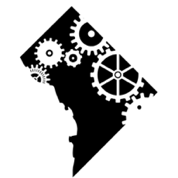 DevOps is a cultural and professional movement, focused on how we build and operate high velocity organizations, born from the experiences of its practitioners.
DevOps is a cultural and professional movement, focused on how we build and operate high velocity organizations, born from the experiences of its practitioners.
Since 2009, DevOps practitioners have been gathering for locally organized conferences known as DevOps Days. We will be hosting DevOpsDays DC on June 11 and 12.
I’d like to invite you to join us for DevOps Days DC as a speaker, participant, and DevOps enthusiast. The call for presenters (CFP) is open through April 15. We are seeking presenters from the public and private sector working within 100 miles of DC who are eager to share their experiences with adopting DevOps practices in their organization. Submit your proposal today.
Registration is open now and we’re excited to welcome a representative blend of attendees for our area. If you’re an employee of the Federal Government, we have a block of tickets set aside just for you. Please register for the “Government Admission” ticket type using your .gov or .mil email address. Everyone else (including federal contractors) can register for the “General Admission” ticket type. Register now to join professionals from organizations such as the US Patent and Trademark Office (USPTO), AddThis, Wells Fargo, and National Institute of Standards and Technology (NIST) at DevOpsDays DC.
Sponsorship opportunities are also available. DevOpsDays is a self-organizing conference for DevOps practitioners that depends on your sponsorships to happen.